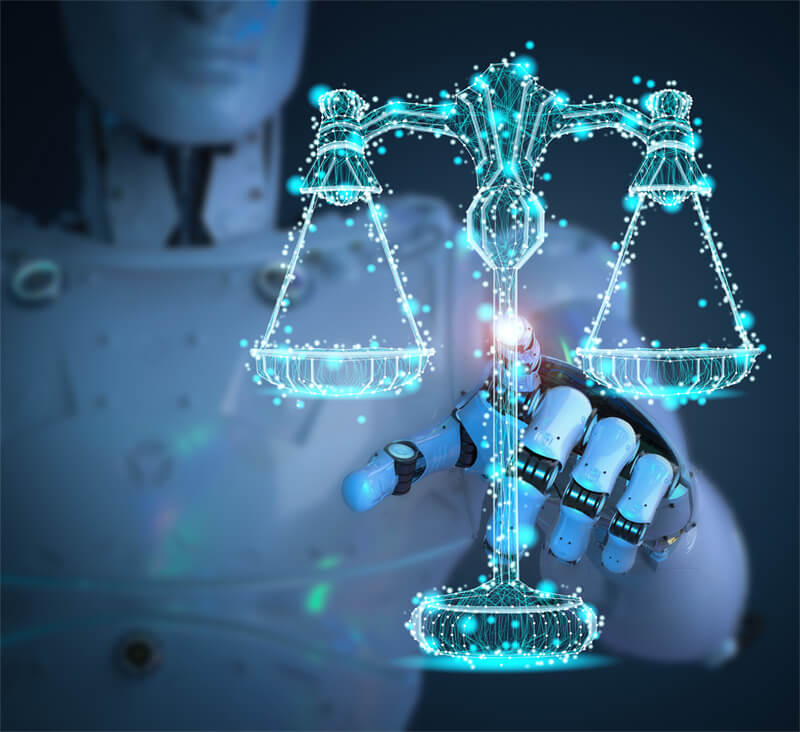
14th January 2023 First AI lawyer to appear in U.S. court In the first case of its kind, artificial intelligence (AI) will be present throughout an entire U.S. court proceeding, when it helps to defend against a speeding ticket.
San Francisco-based DoNotPay has developed "the world's first robot lawyer" – an AI that can be installed on a mobile device. The company's stated goal is to "level the playing field and make legal information and self-help accessible to everyone." When first launched in 2015, the app enabled users to dispute parking tickets. It proved popular, quickly amassing thousands of downloads. DoNotPay's features later expanded to include legal advice on many different subjects, ranging from consumer protection to immigration rights and other social issues. It has since helped three million people settle their claims successfully. Last month, for example, it negotiated with Comcast's representatives to save $120 a year on an engineer's Internet bill, using a series of automated responses. The company is now looking to advance its capabilities still further. Joshua Browder, the British-American founder of DoNotPay, recently put out a call on Twitter asking for someone who had been charged with a speeding ticket to come forward. An anonymous volunteer, who has now been found, will test the application in a real-world setting as opposed to merely online. Next month, the AI will be present in a courtroom for the first time, listening to arguments before instructing the defendant on what to say via an earpiece. DoNotPay's algorithms have been upgraded to use GPT-3, an extremely powerful language model with 175 billion parameters, each of which can be thought of as like synapses in a brain. While GPT-3 and its recent successor are general-purpose chatbots, DoNotPay has fine-tuned the AI on case law. The company is therefore optimistic about winning, but has offered to pay the speeding fine if the defendant loses. "ChatGPT is very good at holding conversations, but it's terrible at knowing the law," said Mr. Browder, in a CBS News interview. "We've had to retrain these AIs to know the law. AI is a high school student, and we're sending it to law school." Mr. Browder says that his technology would be prohibited in the vast majority of U.S. courtrooms. After looking at 300 possible cases, his team found that only two would be feasible. One court is apparently willing to permit the experimental use of AI – on the grounds that while "not in the spirit of law", it is "within the letter of the law." "If these cases are successful, it will encourage more courts to change their rules," he added. Mr. Browder's ultimate goal is to have technology replace lawyers altogether in order to save defendants money: "It's all about language, and that's what lawyers charge hundreds or thousands of dollars an hour to do," he said. "There'll still be a lot of good lawyers out there who may be arguing in the European Court of Human Rights, but a lot of lawyers are just charging way too much money to copy and paste documents, and I think they will definitely be replaced, and they should be replaced." DoNotPay may give consumers the upper hand when it comes to exercising their legal rights and doing so in an affordable way. But as rival services emerge in the near future, a technological 'arms race' could be triggered, with even more intelligent and sophisticated algorithms being deployed by government authorities, banks, and other companies, able to outmanoeuvre the likes of DoNotPay. "You can certainly imagine a point in the future where customer service is completely AI, and people are using AI to argue with them," said Matthew Sparkes, technology reporter for New Scientist, commenting on these developments. "It's going to get to a strange place quite quickly." Eventually, AI might even be permitted in the U.S. Supreme Court, according to Mr. Browder. Earlier this week he offered $1 million to "any lawyer or person [...] with an upcoming case in front of the United States Supreme Court to wear AirPods and let our robot lawyer argue the case by repeating exactly what it says." However, such a test case would face major obstacles. At present, the Supreme Court bans any electronic devices from being worn in the courtroom while Court is in session. Doing so risks a contempt of court charge. Lawyers have already threatened Browder with jail over the speeding ticket case. "There are a lot of lawyers and bar associations that would not support this," he said. It could be many years before the legal milestone of AI in the Supreme Court is a realistic possibility. While technology is advancing exponentially, it can take much longer for business and political changes to catch up. For now, DoNotPay is making a real difference to millions of people through its mobile app. The first legal victory in a real-world setting next month could hint at the longer-term possibilities of AI, not just in courts but in many other areas of society. "My goal with this company is to make the $200 billion legal profession free for consumers," says Mr. Browder in a promotional video. "I want to make big companies scared to mess with people and rip them off. I want to be like the general counsel for the consumer and fight back against these issues."
Comments »
If you enjoyed this article, please consider sharing it:
|







